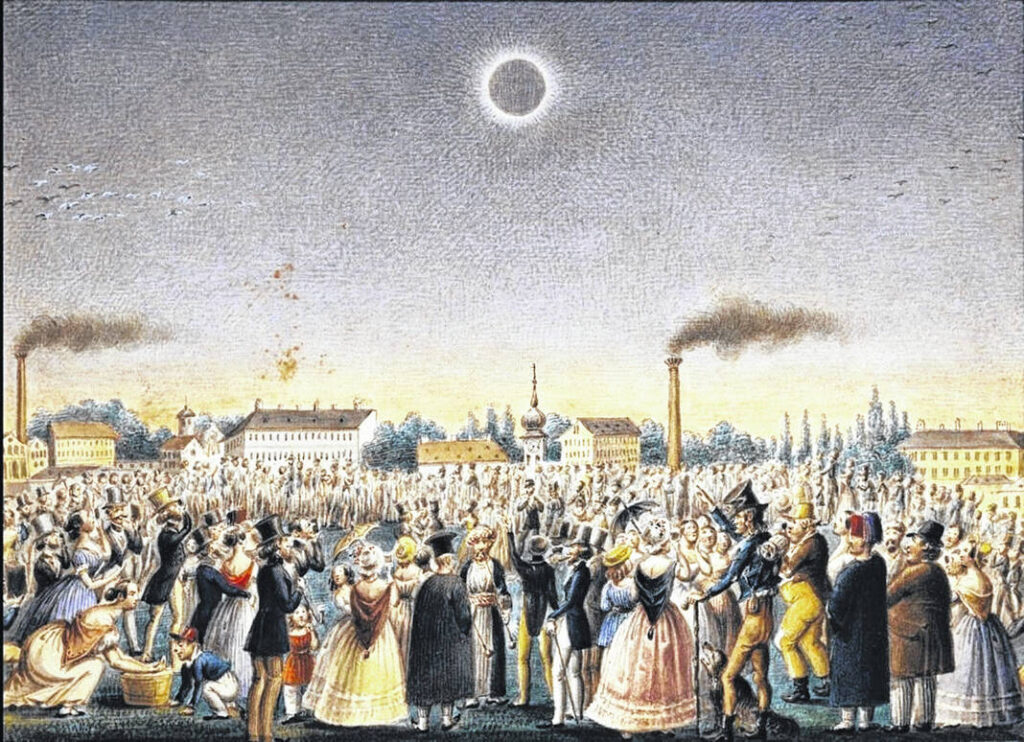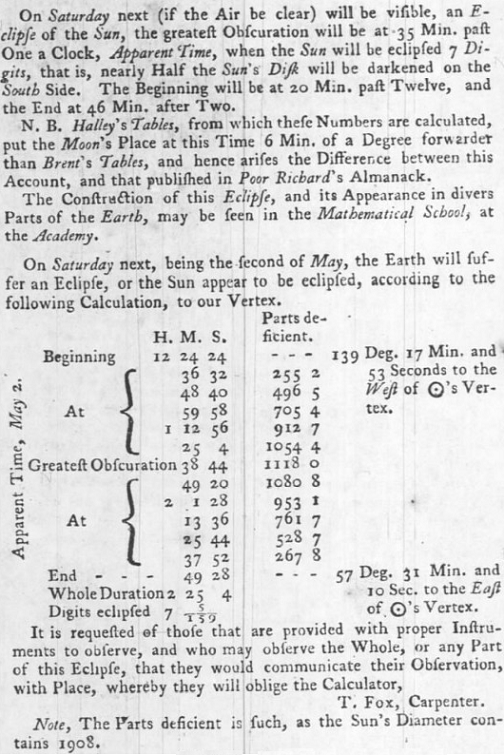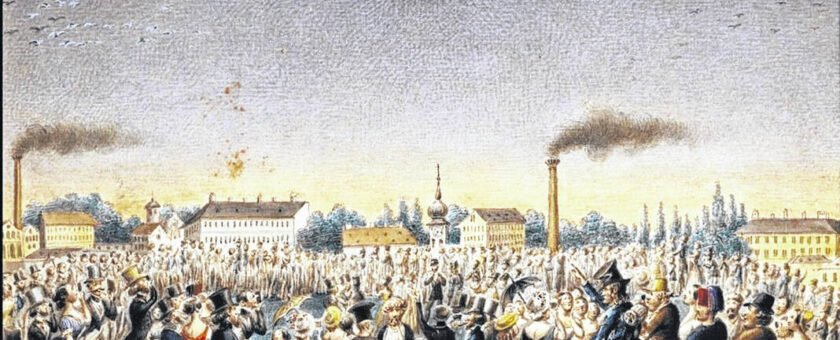Elizabeth, Earthquakes, and Eclipses

With the recent earthquake experienced in the Philadelphia area and the upcoming solar eclipse, I bet you were wondering if Elizabeth Graeme experienced either of these events in her lifetime. No? That’s OK, I get paid to wonder about such things. And the answer is “Yes.” In fact, a very strong earthquake struck New York on December 19, 1737 when Elizabeth was just 10 months old. The Richter Scale had not been invented yet, but it has been estimated by modern scientists to have been a 5.2 magnitude and was strong enough that it toppled chimneys in New York City. People in Boston, Philadelphia, and New Castle, Delaware reported feeling it.
On November 29-30, 1783 when Elizabeth was 46 and living full time at Graeme Park, there was another earthquake that originated very near to this most recent one in New Jersey and was the state’s first recorded seismic event. It has been estimated by modern scientists to have been a 5.3 magnitude, and was felt from New Hampshire to Pennsylvania. The December 2, 1783 Pennsylvania Packet reported on it as follows:
“On Saturday night last, about a quarter after ten o’clock, a smart shock of an earthquake was felt in and about this city; and about one o’clock on Sunday morning another, less violent, was felt by many people in the city and suburbs. Most of the houses were very sensibly shaken so that in many the china and pewter, &c. were thrown off the shelves, and several persons were waked from their sleep. We hope that the country has sustained no damage by this convulsion of nature…”
As for solar eclipses, just as today, they made the news and men were eager to learn about, record and predict them. Poor Richard’s Almanac published the times of an eclipse to occur on May 13, 1752 covering about half of the sun in Philadelphia. A Philadelphia carpenter named T. Fox wrote in to the Pennsylvania Gazette and challenged the times that Ben Franklin had predicted. Modern science has shown Franklin’s times to be off by about 15 minutes, and Fox’s to have been correct.

On January 5, 1777 Thomas Wharton, a member of the Pennsylvania Council of Safety, wrote to General Washington, who’d just been victorious at the battles of Princeton and Trenton, to warn the general that “according to Astronomical Calculations, on Thursday next between the hours of 9 and 11 in the forenoon, a great Eclipse of the Sun will be visible here, perhaps it may not be amiss on this occasion to guard against a superstitious fear in the Army which might take place should the Men be unexpectedly surprised with this appearance.” In his January 8 reply, Washington thanked Wharton and agreed that “this event, without a previous knowledge of it, might affect the minds of the Soldiery, and be attended with some bad consequences.” On January 9, 1777 at approximately 10 am about 2/3 of the sun was eclipsed.
While these earlier eclipses, which occurred when Elizabeth was 15 and 40 may have not seemed like much more than a cloudy day, on June 24, 1778 the Philadelphia region experienced “The Great American Eclipse” which began in the Pacific Ocean and passed over America from what is now southern California to Virginia. While Philadelphia was not in the path of totality, it was close enough to be a significant event. David Rittenhouse, who was a keen observer of 18th century celestial events, carefully observed and recorded the eclipse and published his findings in one of the first issues of the Transactions of the American Philosophical Society. Thomas Jefferson wrote to Rittenhouse “We were much disappointed in Virginia generally on the day of the great eclipse, which proved to be cloudy. In Williamsburgh, where it was total, I understand only the beginning was seen.” The Reverend James Madison, President of William and Mary, was not so disappointed in the experience, writing to Jefferson “There was really something awful [awe-inspiring] in the Appearance which all Nature assumed. You could not determine your most intimate Acquaintance at 20 yds. Distance. Lightening Buggs were seen as at Night.”
Elizabeth Graeme, whose writing reflects an interest in science, nature, and astronomy, and who hosted many learned men at her famed attic evenings, would certainly have taken note of these events and most likely would have been eager to discuss them with her friends.

